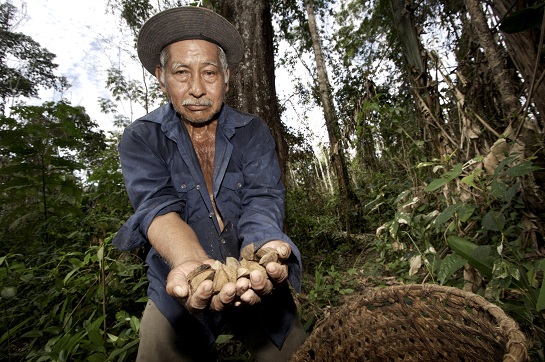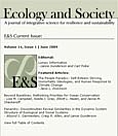- Bringing logging companies in line with FSC certification standards in the Congo Basin
- Building knowledge about climate change adaptation in Congo Basin
- New 10-year research initiative to protect forests and reduce risks for forest communities
- Bioenergy, sustainability and trade-offs
- Landmark findings show mangroves key to fighting climate change
- Rural poor rely on forests for nearly a quarter of household income
- Integrating the management of timber and non-timber forest products in the Amazon
- Reviving frankincense and myrrh for livelihoods and conservation in Ethiopia
- Urgent call for action at Forest Day 5
- Shining a spotlight on Indonesia’s forests
- Pathways to impact

Integrating the management of timber and non-timber forest products in the Amazon
Rural communities in the Amazon often rely on forest products such as valuable Brazil nuts for a significant proportion of their income. Unfortunately, timber companies’ heavy machinery tends to harvest indiscriminately, failing to differentiate between timber species and those that provide livelihoods for the local people.
"CIFOR research raised awareness about the need to harmonise rules and regulations to better integrate the harvesting of both timber and Brazil nuts in small-scale forest management units, including the strengthening of community participation."
In recent years, CIFOR scientists have investigated how best to integrate and balance the management of timber and non-timber forest products. In 2011, researchers focused on timber and Brazil nuts – the region’s highest-value non-timber forest product – in Peru and Bolivia.
‘The two countries present very different situations,’ said CIFOR Principal Scientist Manuel Guariguata. ‘The good news is that an integrated resource management system will benefit both.’
In both Bolivia and Peru, timber and Brazil nuts grow together in the forest. In Peru, forestry laws have created separate timber and Brazil nut concessions. Because the logging regulations in the Brazil nut concessions were less stringent than in the timber concessions, loggers moved their operations there, threatening the Brazil nut trees in the process and promoting unsustainable harvesting of timber.
In Bolivia, communities hold broad rights over their forests and there is no separation of Brazil nut and timber production. CIFOR research raised awareness about the need to harmonise rules and regulations to better integrate the harvesting of both timber and Brazil nuts in small-scale forest management units, including the strengthening of community participation.
It is hoped that CIFOR research will lead to new policies and norms to integrate the management of timber and Brazil nuts, including the promotion of methods such as low-impact extraction techniques and locally developed silviculture, for the benefit of different stakeholders.
